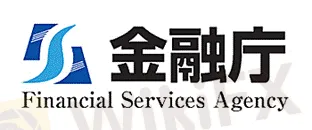简体中文
繁體中文
English
Pусский
日本語
ภาษาไทย
Tiếng Việt
Bahasa Indonesia
Español
हिन्दी
Filippiiniläinen
Français
Deutsch
Português
Türkçe
한국어
العربية
Definition of Financial Services Agency (FSA) - How they work!
Abstract:In order to protect depositors, insurance policyholders, and investors in securities, the Financial Services Agency ensures that Japan's financial system is stable and dependable. The Securities and Exchange Surveillance Commission is responsible for monitoring, overseeing, and making the financial sector transparent. They also look after the Certification Board for Public Accountants and the Auditing Oversight Committee.

What is a Financial Services Agency, and what does it do?
It is the responsibility of the Financial Services Agency (also known as the FSA) in Japan to regulate the banking, insurance, and stock markets.
The Financial Services Agency's mission is to safeguard depositors, insurance policyholders, and investors in securities by ensuring Japan's financial system is stable and reliable. Through the Securities and Exchange Surveillance Commission, it is in charge of inspecting, supervising, and making transparent the financial system. Oversight of the Certified Public Accountants and the Auditing Oversight Board is also handled by this body.
As part of the financial reconstruction commission, the Financial Supervisory Agency was reorganized in July 2000 to become the FSA. This organization's headquarters are in Tokyo.
Learning About Banks and Other Financial Institutions (FSA)
A reorganization of Japan's Cabinet Office led to the Financial Services Agency, which is written in Japanese, becoming an outside institution of the Cabinet Office. Each year, the country's Minister of State for Financial Services receives a report on the organization's work.
To plan and make decisions about Japan's financial system, the Financial Services Agency (FSA) is in charge. It also supervises private sector financial institutions, sets up rules for trading in markets, and supervises CPAs and auditing firms.
Examples of Financial Services Companies in Action.
Japan's Financial Services Agency has recently started keeping an eye on cryptocurrency exchanges as part of its regulation of the country's financial activity.
If these exchanges don't stop dealing with certain types of cryptocurrency that are popular with cybercriminals and computer hackers, the FSA wants them to stop doing that to stop money laundering and stop criminal activity on the dark web. Forbes reported on this in April 2018.
According to a Forbes story, the FSA was apparently using “all available means to prohibit the usage of some alternative virtual currencies that have proved attractive to the underworld because they are difficult to trace.”
There have been a few instances when the government has even issued closure orders for individual bitcoin exchanges. The FSA in Japan ordered the closure of two crypto-exchanges for a long time in early April 2018 after Coincheck lost more than $532 million. The FSA was trying to improve regulation at the time.
Japan's bitcoin exchanges are required to have a license, which the FSA previously implemented. In the end, it was decided that Coincheck should look into the hacking incident and write a report about how to avoid it in the future.

Disclaimer:
The views in this article only represent the author's personal views, and do not constitute investment advice on this platform. This platform does not guarantee the accuracy, completeness and timeliness of the information in the article, and will not be liable for any loss caused by the use of or reliance on the information in the article.
Related broker
Read more

What Are The Common Types of Unregulated Forex Brokers?
Protect your investments from unregulated forex brokers with these tips. Learn about red flags, scams, and how the WikiFX app ensures safe trading experiences worldwide.

Pros and Cons of Choosing Unregulated Forex Brokers
Discover the pros and cons of unregulated forex brokers, explore risks, benefits, and key features, and learn how to evaluate their credibility with the WikiFX app.

5 Questions to Ask Yourself Before Taking a Trade
Before executing any trade, traders should pause and ask themselves critical questions to ensure they are making rational and well-informed decisions. Here are five questions to help you reflect on your strategy, manage risk, and control emotions before entering the market.

The Psychology of Investment Scams: Understanding Why Victims Fall Prey
Investment scams have become increasingly sophisticated, preying on human psychology to exploit vulnerabilities. While these fraudulent schemes promise extraordinary returns, they often rely on psychological tactics to deceive victims. Understanding these factors can help traders recognise and avoid falling for scams.
WikiFX Broker
Latest News
Spotware Unveils cTrader Store, Global Marketplace for Algo Creators
Elderly Trader Loses RM2.1M in WhatsApp Forex Scam
Gigamax Scam: Tracking Key Suspects in RM7 Million Crypto Fraud
CFI Partners with MI Cape Town, Cricket Team
Doo Financial Expands Reach with Indonesian Regulatory Licenses
WikiFX Review: Is IQ Option trustworthy?
5 Questions to Ask Yourself Before Taking a Trade
Quadcode Markets: Trustworthy or Risky?
Avoid Fake Websites of CPT Markets
Webull Canada Expands Options Trading to TFSAs and RRSPs
Currency Calculator


